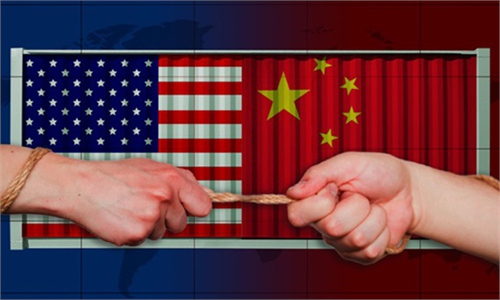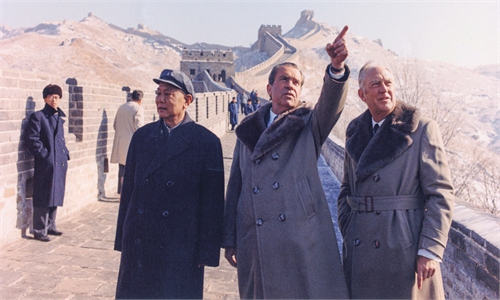Fifty years after Nixon's visit, US businesses urge 'continued cooperation' with China
Businesses reject ‘decoupling’ on 50th anniversary of Nixon’s China visit
Five decades after then US President Richard Nixon made an ice-breaking visit to China in 1972 that helped start bilateral diplomatic engagement, US business leaders in China voiced hope for continued commercial communication between China and the US and rejected a decoupling between the two economies.
Monday marks the 50th anniversary of Nixon's historic visit to China, during which the two countries issued a document known as the Shanghai Communiqué, which became the political foundation for the normalization of China-US relations.
"We as a US business chamber still hope that China and the US continue to maintain at least economic and trade interactions amid relatively complex global geopolitics... we don't want the so-called decoupling," Eric Zheng, President of AmCham Shanghai, told the Global Times on Monday.
According to him, the changes and challenges emerging in the two countries' economic relations in the past few years, especially the trade war, had exerted negative impact on the markets and enterprises in both countries, and they didn't help solve the specific problems.
"We hope that the two sides could figure out a more positive mechanism to resolve their trade and commercial disputes...instead of by increasing tariffs, which actually bring harm to both countries," he said.
Zheng also noted that the AmCham Shanghai has been communicating with US policymakers, including the US Congress, the administration, and US think tanks, to provide accurate information on US companies' operations in China.
Although bilateral relations had encountered many uncertainties, with disputes and sanctions, economic interactions seemed to have reached a new pinnacle with the entrance and success of many US companies like Tesla and Disneyland in the Chinese market in recent years.

A view of Yantian port in Shenzhen, South China’s Guangdong Province on February 16, 2022. According to customs data, the port, one of China’s largest, has handled 449,000 standard containers since the Spring Festival, with a total value of 13.86 billion yuan ($2.19 billion). Photo: cnsphotos
Bilateral trade is also flourishing. Last year, China-US trade surged by 28.7 percent on a yearly basis to $756 billion, data from Chinese customs showed.
"(The trade growth) is sufficient evidence that the economies of China and the US are highly complementary, and that the two sides' cooperation is in accord with the two countries' interests," Eddy Chan, senior vice president, head of China, FedEx Express, said on Monday.
He said that FedEx is confident and supportive of the flourishing development of China-US trade, noting that his company currently runs about 300 flights each week serving the Chinese market.
Zheng also said that US companies, both manufacturers and service providers, see China as a top strategic market, as they not only source products from China, but also sell to this market.
He cited the example of a recent survey conducted by AmCham Shanghai that US companies are still positive about the potential of the Chinese market, as nearly 80 percent of the respondents said they are optimistic or relatively optimistic about the business outlook in China in the next five years.
"Besides, we don't see a clear trend of (US companies) shifting supply chains out of China. And even if some are shifting or considering shifting, they are not planning to move to the US," Zheng said.
The comments are the latest examples of such appeals from US business circles, at a time when bilateral relations are on a bumpy road with economic disputes ranging from the trade war to US restrictions on supplies to Chinese tech companies.
Experts said that it's possible for China and the US to go back to a "free state" in terms of trade, in spite of competition in other fields.
"There are some voices in the US hoping to develop business with China as a trade war will harm US businesses as well, while China is also making efforts to improve the business environment to let more US businesses have confidence to develop in China," Xiao He, an expert from the Institute of World Economics and Politics at the Chinese Academy of Social Science, told the Global Times on Monday.



